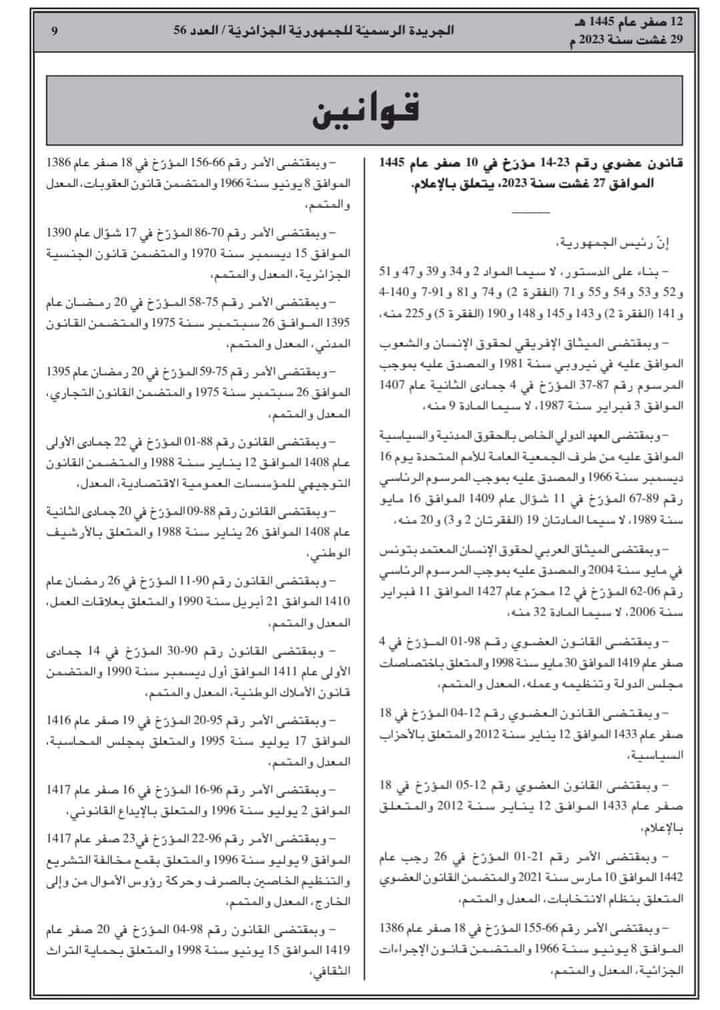
Organic Law No. 23-14 related to media was issued in the latest issue of the Official Gazette. The law includes 56 articles aimed at “defining the principles and rules that regulate media activity and its free practice,” according to Article 1. from him.
Article 2 of the organic law related to media states that media activity means, in the provisions of this law, “every publication of news, pictures, opinions, and every broadcast of events, messages, ideas, knowledge, and information through any written, electronic, or audiovisual support directed to the public or a group of it.”
Article 3 states that “media activity is freely practiced” within the framework of the provisions of the Constitution, this organic law, the legislation and regulation in force, and in light of respect for the Islamic religion, the national religious reference, other religions, national identity, constants, religious, moral and cultural values of the nation, national sovereignty, national unity and territorial integrity. National, components and symbols of the state, human dignity and individual and collective freedoms, economic interests of the country.” It also recognizes “the citizen’s right to complete, impartial and objective information, confidentiality of the preliminary and judicial investigation.
The law defines the rights and duties of the journalist, including an employment contract, insurance, and training by the employing body. The law requires media institutions to continuously train and improve the knowledge of journalists. While the law defines a number of prohibitions, the violation of which is punishable by a journalist, as it is forbidden for a journalist to publish or broadcast false news. Or tendentious, endangering people’s lives, glorifying colonialism, or insulting national memory and symbols of the liberation revolution. It also prohibits directly or indirectly praising racism, terrorism, intolerance and extremism, and publishing or broadcasting, directly or indirectly, hate speech and discrimination. Journalists are prohibited from exploiting the profession for personal or material purposes, and resorting to illegal and corrupt methods to gain access to information, photos and documents. The new law prohibits publishing or broadcasting images, sayings, signs, or gestures that are immoral or shocking to the feelings of citizens.
A journalist is legally prohibited from accepting financial or in-kind benefits, whatever their value, that limits his objectivity, professional independence, or opinion, and succumbing to pressure that leads to spoiling the information, and stipulating the publication of information by obtaining a reward or any other form of advantages. Violation of these prohibitions exposes him to disciplinary penalties determined by the Supreme Council of Professional Ethics. journalist. The law provides for the creation of a council consisting of 12 members, half of whom are appointed by the President of the Republic and the other half are elected by journalists and publishers. The law also stipulates the creation of an independent national authority to control audiovisuals, in addition to obligating public bodies and institutions to guarantee the right of journalists to access information. The law grants journalists the right to benefit from literary and artistic ownership of their works.
#issuance #organic #law #related #information #Algerian #Official #Gazette #AlHiwar
#oussama_boulegheb #elhiwardz #alakhibariat.xyz #elhiwar #elhiwar-en